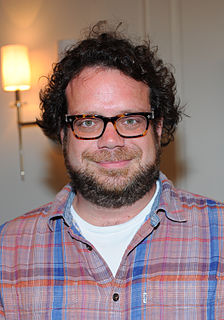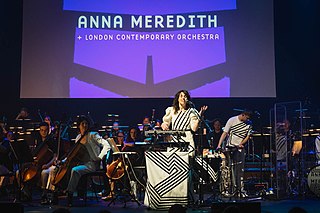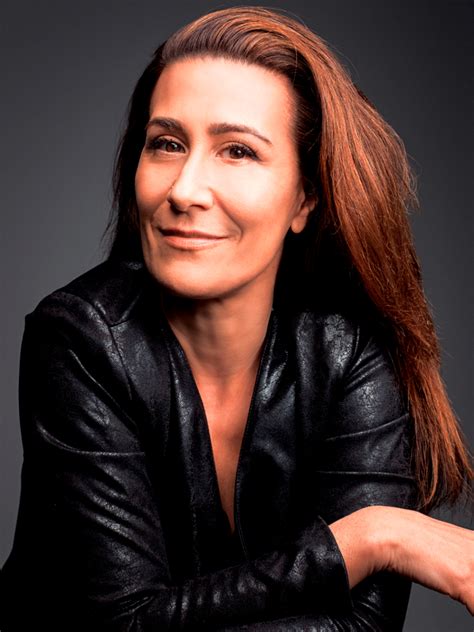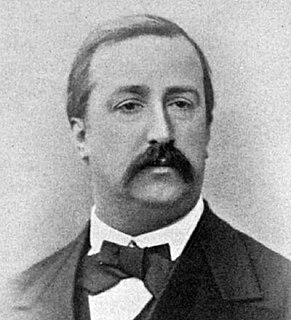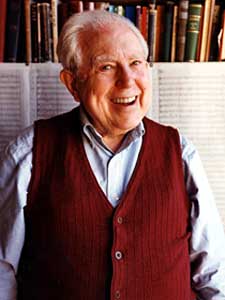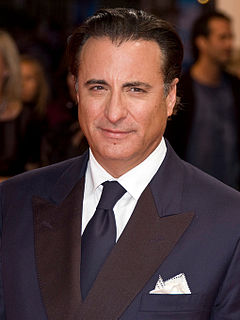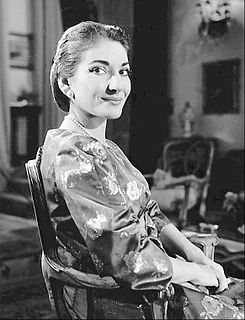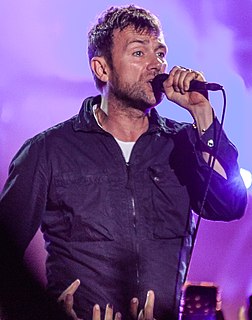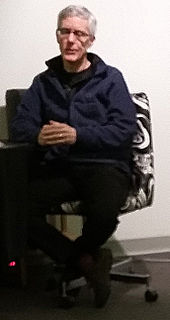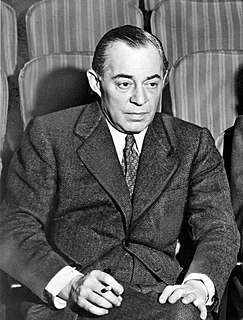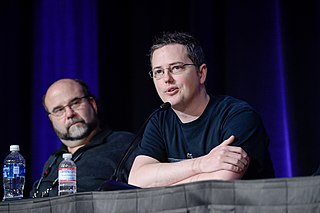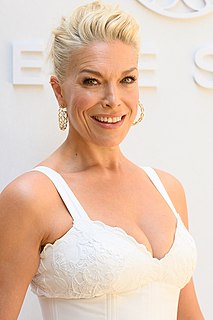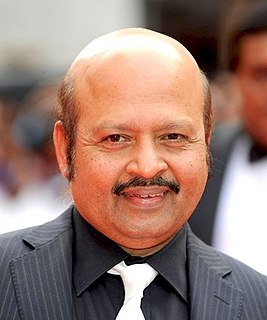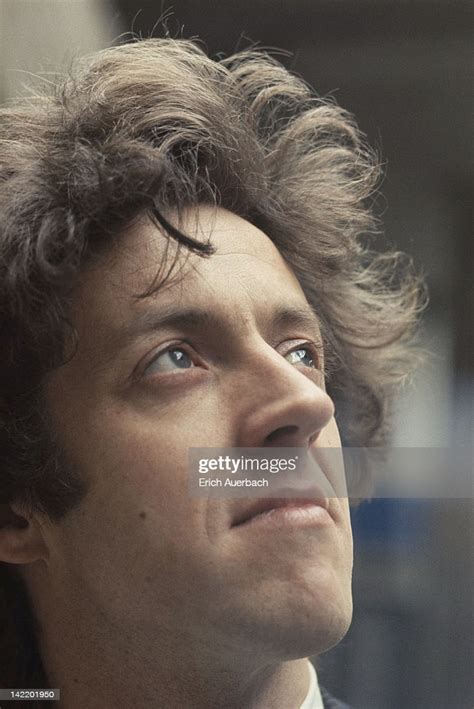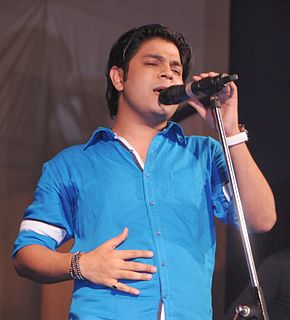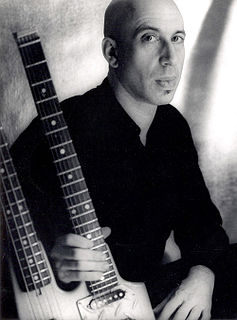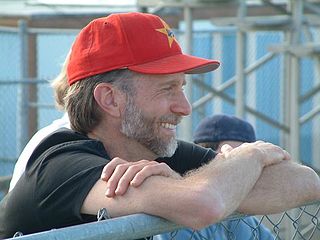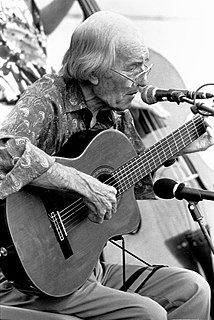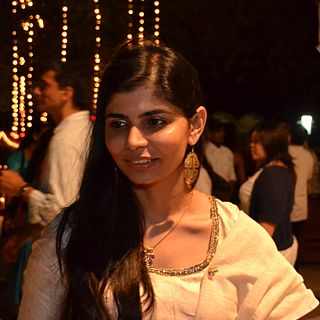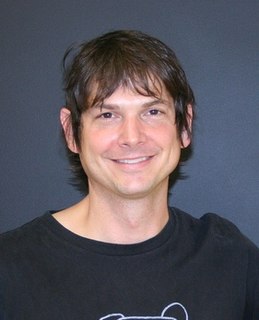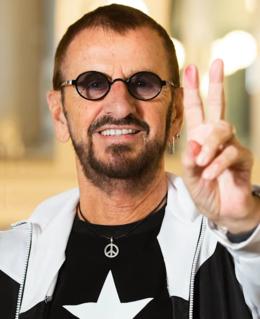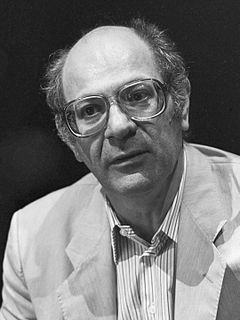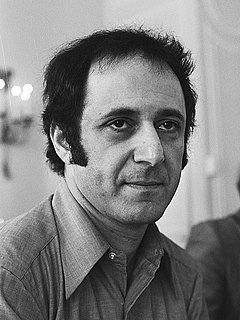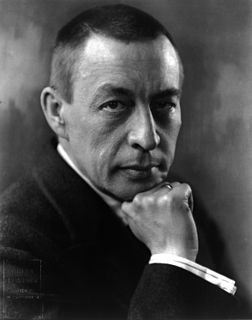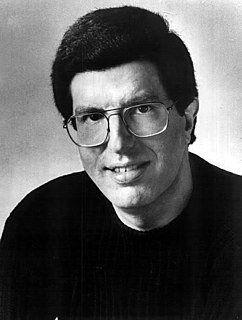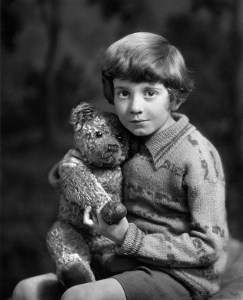Top 743 Composer Quotes & Sayings - Page 12
Explore popular Composer quotes.
Last updated on November 12, 2024.
In 2015, an opera opened about me and Justice Antonin Scalia. It's called 'Scalia/Ginsburg.' The composer, Derrick Wang, has degrees in music from Harvard and Yale. Enrolled in law school, he was reading dueling opinions by me and Justice Scalia and decided he could compose an appealing comic opera from them.
Have you seen a symphony orchestra? There is a person at the back carrying a triangle. Now and again the conductor will point to him or her and that person will play "ting." That might seem so insignificant, but in the conception of the composer something irreplaceable would be lost to the total beauty of the symphony if that "ting" did not happen.
I don't understand why we have to experiment with film. I think everything should be done on paper. A musician has to do it, a composer. He puts a lot of dots down and beautiful music comes out. And I think that students should be taught to visualize. That's the one thing missing in all this. The one thing that the student has got to do is to learn that there is a rectangle up there - a white rectangle in a theater - and it has to be filled.
Tim Price continues to explore and develop his deeply personal approach to music. Through the years his persistence, determination and passion has enabled him to create a stellar reputation as a multiple woodwind master, composer, producer, author and last but not least educator. Tim is one of the best musicians active today and I'm happy to say he's my friend.
For the virtuoso, musical works are in fact nothing but tragic and moving materializations of his emotions; he is called upon to make them speak, weep, sing and sigh, to recreate them in accordance with his own consciousness. In this way he, like the composer, is a creator, for he must have within himself those passions that he wishes to bring so intensely to life.
Sometimes the personality or just the particular process of a director can really affect your quality of life as a composer in terms of how much time you spend away from your family or the amount of time you spend doing the type of work that you maybe don't consider as fun to do as other type of work.
Many consider that Shostakovich is the greatest 20th-century composer. In his 15 symphonies, 15 quartets, and in other works he demonstrated mastery of the largest and most challenging forms with music of great emotional power and technical invention...All his works are marked by emotional extremes - tragic intensity, grotesque and bizarre wit, humour, parody, and savage sarcasm.
I'm less interested in uniqueness than in goodness. I see so many concerts where the program notes are more interesting than the music. I remember talking to one composer who went through the most complicated mathematical algorithm to generate some material from scratch. It took weeks and weeks, and he came up with a C major chord. For me, honesty is more interesting than originality.
Salieri was a pupil of Gluck. He was born in Italy in 1750 and died in Vienna in 1825. He left Italy when he was 16 and spent most of his life in Vienna. He's the key composer between classic music and romantic music. Beethoven was the beginning of romantic music, and he was the teacher of Beethoven and Schubert.
Just recently, I thought about how maybe I should have kept using the synthesisers more after 'Merry Christmas, Mr Lawrence'; then, I would have been a more unique soundtrack composer than I am now. It could have been my signature. But then, probably, Bertolucci would not have offered me to compose for his films.
I think a lot of people get intimidated by the language of music, but everyone owns music. I think there's nothing standing in between a composer and her audience. I think a lot of people feel that way because they feel it's rarefied, but it's really not. You should feel the impact of it without being able to name it because it's ultimately a primal thing.
As a composer seeking to remain anonymous I am shy of confessing my musical activity. This is intelligible enough. For others it is their chief business, the occupation and aim of life. For me it is a relaxation, a pastime which distracts me from my principal business, my professorship. I love my profession and my science. I love the Academy and my pupils, male and female, because to direct the work of young people, one must be close to them.
'Jazz Artist of the Century' would have to be a distinctive soloist and ensemble player, a composer, an arranger, a bandleader, and a driver; would have to span all the genres and periods of jazz; would have to have run her own label; [would] possess a deep spirituality, with grace and a sense of humor; and would have to have succeeded against all odds. Who else? Mary Lou Williams.
When people listen to my music, I hope that they will notice that if you take a piece by a composer like Schubert, the major and the minor triad is an extermely important thing not merely as harmony, but in creating melodic lines. Schubert is always walking up and down with arpeggios on C, E, G and so forth. I am not doing anything different really, except using a different system of harmony.
I knew a gentleman that I had worked with over the years, who is no longer with us, and was a great influence in my life named Cachao - a Cuban musician, composer, arranger, and creator of the Mambo. The integrity of the journey is what's important - how you conduct yourself in the process. That's what Cachao was always about. He had great integrity, great dignity, was very humble, and dedicated to his art.
What [Tulio Serafin] said that impressed me was: "When one wants to find a gesture, when you want to find how to act on stage, all you have to do is listen to the music. The composer has already seen to that." If you take the trouble to really listen with your soul and with your ears - and I say soul and ears because the mind must work, but not too much also - you will find every gesture there. And it is all true, you know.
Alfred Schnittke was an important contemporary composer, and he lived in Germany, but no one here has heard of him. Everyone has heard of Mozart, and many believe that he can still be found in that little house in Salzburg, which is why people stand there in line. I think that our music and our art belong to our era. If the public doesn't show up, it must be stupid.
I'm an English songwriter/composer, working in Mandarin and trying to find something about Chinese culture that I really relate to and respect and feel some genuine emotions for - and it's quite hard, the pentatonic scale, and that, in a way, is why I think it works. Because I'm forced to limit myself to quite strict rules about what I did. Maybe that's how I avoided pastiche.
The use of electronics is a natural extension of the instrument - it is an electric guitar. So we guitarists have been plugging into something since 1931, and we are not about to stop now. Current advances in technology means we can have a huge array of sounds at our fingertips, and this offers amazing possibilities to the contemporary composer. It is always a guitar (I don't play synthesizer) but it becomes something else all together - more like sculpting sound in real time using metal wires, 5 fingers and a pick.
In many ways, a song-writing partnership is like a marriage. Apart from just liking each other, a lyricist and a composer should be able to spend long periods of time together - around the clock if need be - without getting on each other's nerves. Their goals, outlooks, and basic philosophies should be similar.
The reality is each new day and each project is another opportunity to learn, experiment and try something I haven't done before. I've found that's what keeps me motivated and moving forward - learning new things and challenging myself on a daily basis to improve as a composer, recording engineer, percussionist, guitarist, producer...the list goes on and on!
Sondheim informs us, more than any other composer, about the joys, passion and pain of being a woman living in various social conditions through the ages with frightening accuracy. Playing a variety of his characters has always made me feel like I'm having a free therapy session through his words and music!
If you think of the way a composer or say a pop arranger works - he has an idea and he writes it down, so there's one transmission loss. Then he gives the score to a group of musicians who interpret that, so there's another transmission loss. So he's involved with three information losses. Whereas what I nearly always do is work directly to the sound if it doesn't sound right. So there's a continuous loop going on.
I remember when the great composer Madan Mohan had suddenly passed away, the producer-director H.S. Rawail had approached me to complete three of the pending songs in the Rishi Kapoor-Ranjeeta starrer 'Laila Majnu.' I refused saying I am not worthy of sharing a soundtrack with a genius like Madan Mohan saab.
I have been told that a young would-be composer wrote to Mozart asking advice about how to compose a symphony. Mozart responded that a symphony was a complex and demanding form and it would be better to start with something simpler. The young man protested, 'But, Herr Mozart, you wrote symphonies when you were younger than I am now.' Mozart replied, 'I never asked how.
There is no dearth of talented lyricists and I know many of them don't get an opportunity. After I received success, many of them approached me via e-mail or phone calls to tell me about their work. If I feel that a song written by a lyricist is fit for a film on which I am working as a composer, I give them the break.
People don't live their lives in a series of scenes that form a dramatic narrative, they don't speak in dialogue, they're not lit by a cinematographer or scored by a composer. The properties of real life and the properties of drama have almost nothing to do with each other. The difference between writing about reporters and being a reporter is the same as the difference between drawing a building and building a building.
In any case, once you're dealing on a nonverbal level, ambiguity is unavoidable. But it's the ambiguity of all art, of a fine piece of music or a painting - you don't need written instructions by the composer or painter accompanying such works to 'explain' them. “Explaining” them contributes nothing but a superficial 'cultural' value which has no value except for critics and teachers who have to earn a living.
After I found out that I was playing music and that I'd have to learn how to read and write music, I started doing that about two years later. Finally, I said, "Oh, that means what I really want to do is to be a composer." But when I was coming up in Texas, there was segregation. There was no schools to go to. I taught myself how to read and how to start writing.
Thorny compositions that sound as if female teen punkers the Shaggs received doctorates in the music of 12-tone composer Alban Berg, and then rewrote their Philosophy of the World.... Carefully notated structures and interplay morph effortlessly into free improvisation that is intelligent and expressive, but never self-indulgent. Also featuring intense lyrics sung with their clear and melodic voices, the two women make transcendent chamber music outside of any genre.
When I make film music, I'm a filmmaker first and foremost. It's about serving the needs of the film. You're telling a story; in a way, you stop becoming a composer and become a storyteller instead. You tell the story with the most appropriate themes. How you approach these things is a very personal matter, but your goal is to tell the story first.
Out of the choked Devonian waters emerged sight and sound and the music that rolls invisible through the composer's brain. They are there still in the ooze along the tideline, though no one notices. The world is fixed, we say: fish in the sea, birds in the air. But in the mangrove swamps by the Niger, fish climb trees and ogle uneasy naturalists who try unsuccessfully to chase them back to the water. There are things still coming ashore.
The great composer does not set to work because he is inspired, but becomes inspired because he is working. Beethoven, Wagner, Bach and Mozart settled down day after day to the job in hand with as much regularity as an accountant settles down each day to his figures. They didn't waste time waiting for inspiration.
Presenting Aschenbach as a composer - based on Mahler - leads to some dreadful scenes (especially those in which Aschenbach is berated by his student), and it surely distorts the character Mann created. Yet, we know that Mann's novella was based on a holiday in Venice he took with his wife and brother, and that while he was there he followed the reports in the German newspapers, describing the dying Mahler's progress as he returned from New York to Vienna.
As a composer, I believe that music has the power to inspire a renewal of human consciousness, culture, and politics. And yet I refuse to make political art. More often than not political art fails as politics, and all too often it fails as art. To reach its fullest power, to be most moving and most fully useful to us, art must be itself.
I had been to São Paulo the year before and became pretty well acquainted with the music of composer Antonio Carlos Jobim, I had already started playing that music, and the audience response had been pretty good because those songs are so melodic. I knew it would be something that would be appealing; I wasn't thinking that it would make the top of the pop charts or anything like that.
There is a myth that Rahman sir only works at night. He works through the day and night, so it depends what time slot you end up working with him. Besides nights, I have sung for him in the morning and at noon, too. I think he's the first composer to work at night, and that's why it's spoken about so much.
I used to wish I could write songs like the others - and I've tried but I just can't. I get the words all right, but whenever I think of a tune and sing it to the others they always say 'Yeah, it always sounds like such a thing' and when they point it out I see what they mean. But I did get a part credit as a composer on one - it was called What Goes On.
Deep Listening is listening in every possible way to everything possible to hear no matter what you are doing. Such intense listening includes the sounds of daily life, of nature, or one's own thoughts as well as musical sounds. Deep Listening represents a heightened state of awareness and connects to all that there is. As a composer I make my music through Deep Listening
I've certainly stayed a marginal figure, though I became a member of the "surveillance committee" fairly early on. I can actually live pretty well with this, because I'm allowed to work in peace - except when I have to give strings of interviews... And also, I've never sought a position of power in the music business. I became a teacher not so as to found a Kagel School, but to transmit knowledge. My work as a composer should be the only yardstick by which my contribution can be measured.
A man with a talent does what is expected of him, makes his way, constructs, is an engineer, a composer, a builder of bridges. It's the natural order of things that he construct objects outside himself and his family. The woman who does so is aberrant. We have to expiate for this cursed talent someone handed out to us, by mistake, in the black mystery of genetics.
There are great jazz educators that I meet all the time. I met a guy named Paul Luchessi who has a high school jazz program in Fresno. And Bob Athayde who runs a junior high program in Lafayette, California. And man, we walked into these schools and Paul Luchessi said, "Jon is the composer of Paradox." A hundred or something kids started to applaud. "What? You guys know that? I'm so blown away.
I don't care how much people understand what it is that I'm doing, except if they're players in my ensemble or other ensembles. I just want people to be moved by the music. If you're not moved by the music, then everything else falls away. You're not interested in the text, you're not interested in how it was done, and you're not interested in interviewing the composer and all the rest of it.
[Phil wood] put on some [Igor] Stravinsky and say to follow the score, tell me to play me the opening to the Rite of Spring. Or, "I'm going to play you some 20th century obscure classical composer you don't know". Or, "Let's listen to some Charles Ives, let's sight read some Bartok violin duets", etc.
Opinion in all parts of the world would agree that Rachmaninoff is the most complete of living masters of the instrument; his technique is comprehensive, and he is, of course, musical to his bone's marrow. Most important of all, he is a composer, and for this reason he is able to approach a work as none of his pianist contemporaries can approach one - that is, from the inside, as an organic and felt creative process.
Songs give you incredible opportunity to convey a tremendous amount in a relatively short period of time. The first thing that John Powell, our composer, says is, "Is the song engaging you to tap your toe?" If you're not tapping your toe, it doesn't matter what you're doing in the song, it's not going to work. But, if you can get the audience to be engaged by the song, then it gives you the opportunity to accomplish so much, in a very concise way.
Every song has a composer, every book has an author, every car has a maker, every painting has a painter, and every building has a builder. So it isn't irrational to take this simple logic a little further and say that nature must have had a Maker. It would be irrational to believe that it made itself.
I don't think they understand it's as important as math and science. It rounds you out as a person. I think it gives you a love of certain things. You don't have to become the next great composer. It's just nice to have heard certain things or to have seen certain things. It's part of being a human being.
It is only by demanding the impossible of the piano that you can obtain from it all that is possible. For the psychologist this means that imagination and desire are ahead of the possible reality. A deaf Beethoven created for the piano sounds never heard before and thus predetermined the development of the piano for several decades to come. The composer's creative spirit imposes on the piano rules to which it gradually conforms. That is the history of the instrument's development. I don't know of any case where the reverse occurred.
I will gladly give lessons as a favor, particularly when I see that my student has talent, inclination, and anxiety to learn; but to be obliged to go to a house at a certain hour, or to have to wait at home for a pupil, is what I cannot do, no matter how much money it may bring me in. . . I am a composer and was born to be a Kapellmeister. I neither can nor ought to bury the talent for composition with which God in his goodness has so richly endowed me. . .






